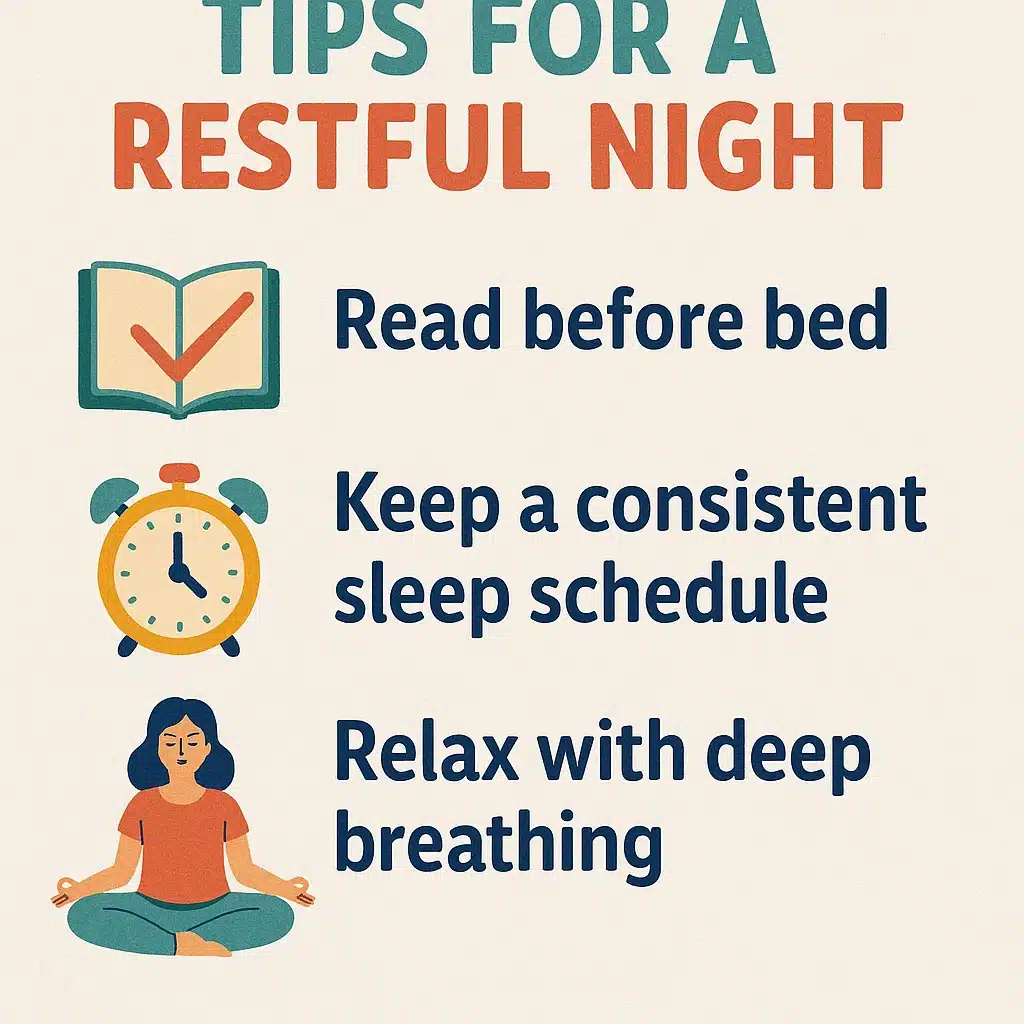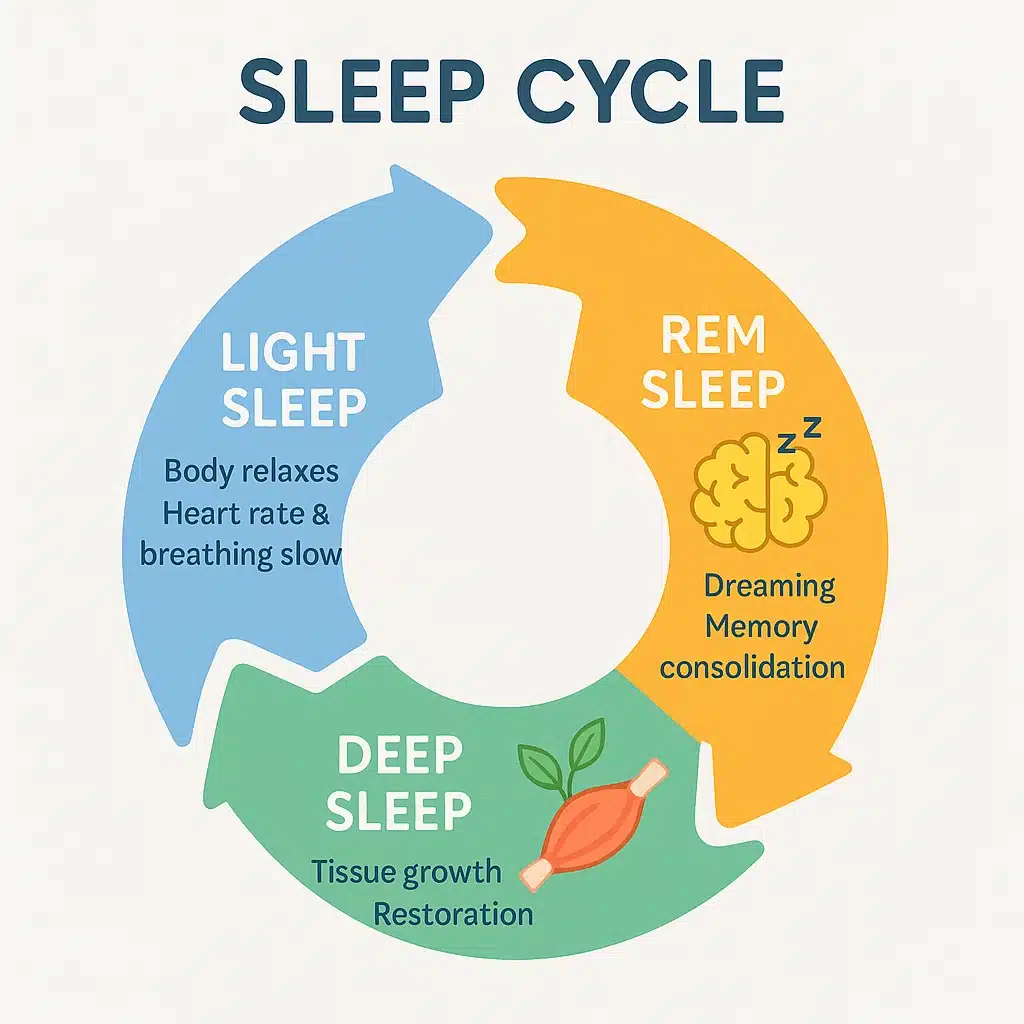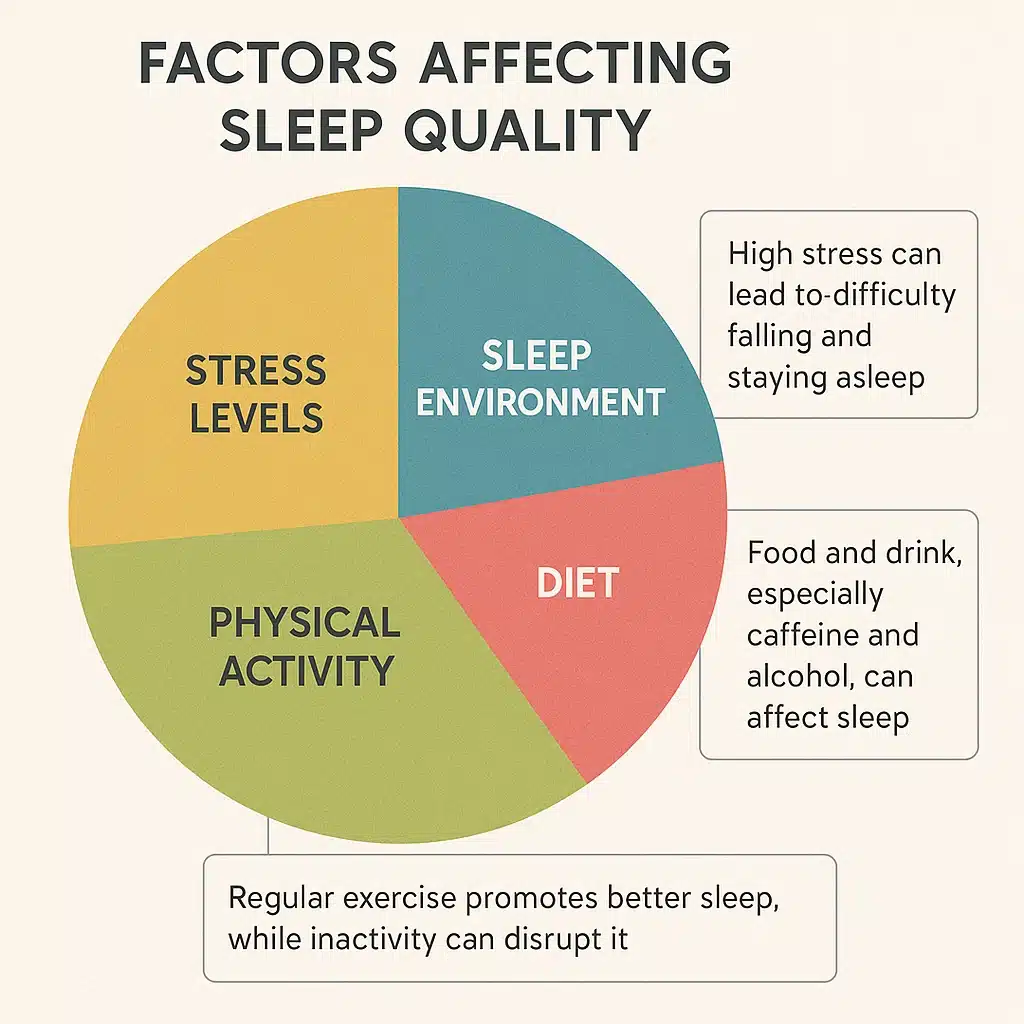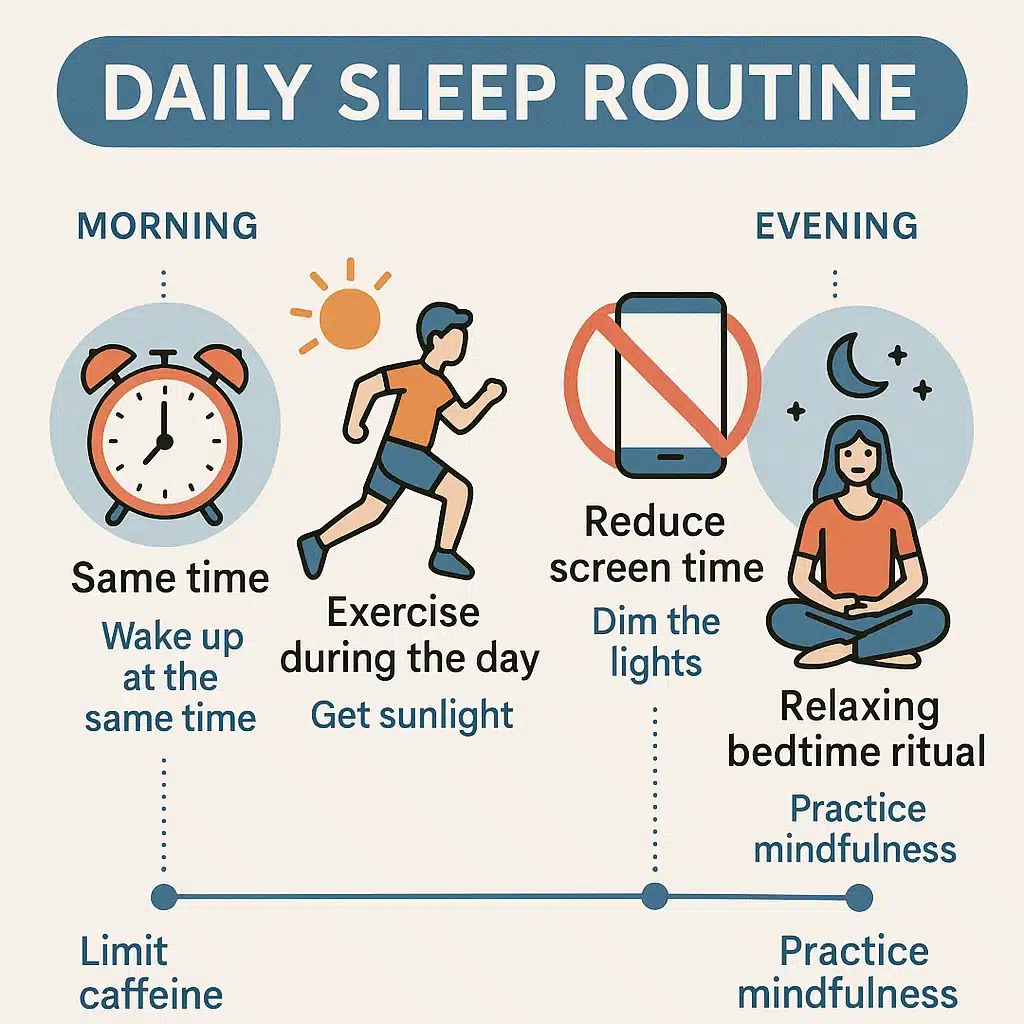In our fast-paced world, good sleep can often feel like a luxury. Yet, improving sleep quality is essential for overall well-being. If you’re health-conscious and seeking natural ways to enhance your rest, you’re in the right place. This article covers essential tips on **how to improve sleep quality**, focusing on natural remedies and straightforward strategies to help you drift off peacefully night after night. From establishing healthy sleep hygiene practices to optimizing your sleep environment, each tip is tailored to guide you toward restful nights. Let’s dive in!
What Is Sleep Quality?
Sleep quality isn’t just about the number of hours you log; it’s also about how restorative that sleep is. Quality sleep allows our bodies to undergo vital physical and mental rejuvenation. Indicators of good sleep quality include how easily one falls asleep, how many times a person wakes up during the night, and the overall feeling of restfulness upon waking. In short, optimizing sleep quality can improve your mood, cognitive function, and even your physical health.
Importance of Good Sleep Hygiene
Good sleep hygiene refers to a series of practices that promote continuous, deep sleep. When practiced regularly, these habits can significantly improve sleep quality. Think of sleep hygiene as the foundation of your nighttime routine. Good hygiene can prevent sleep disturbances, reduce insomnia, and allow you to wake up feeling fully energized.

Creating a Daily Routine
One of the most effective ways to improve sleep quality is by establishing a consistent sleep schedule. Going to bed and waking up around the same time every day trains your body’s internal clock and can lead to better rest. Even on weekends, try to keep your schedule relatively consistent. This routine makes it easier for your body to anticipate sleep, leading to easier nights and refreshing mornings.
The Role of Circadian Rhythm
Your **circadian rhythm** is your body’s internal clock, regulating sleep and wakefulness. External factors, like light exposure, can affect its functioning. Aim to get plenty of natural light during the day, especially in the morning, and limit artificial light in the evening. This helps improve melatonin production, the hormone responsible for sleep, and will help ensure that your body knows when it’s time to wind down.
Optimal Room Temperature and Darkness
The environment you sleep in can significantly influence your sleep quality. Ideal sleeping conditions often include a cool room—typically around 60 to 67 degrees Fahrenheit. Additionally, complete darkness helps your body produce melatonin more effectively. Consider blackout curtains or a sleep mask to block out distracting light.
How to Choose the Right Mattress and Pillows
Investing in a quality mattress and pillows that support your sleeping style can make a huge difference. Whether you prefer firm or plush options, ensuring your sleeping surface is comfortable can significantly enhance your sleep experience. Don’t overlook pillows, as the right kind can alleviate neck pain and promote better posture.
Noise Management Techniques

External noise can disrupt your sleep; consider using white noise machines, earplugs, or apps that generate soothing sounds. These tools can mask disruptive noises, helping you stay asleep longer and improve overall sleep quality.
Effects of Blue Light on Sleep Quality
It’s no secret that blue light from screens—whether it be phones, tablets, or computers—can affect how well we sleep. This light inhibits melatonin production and can keep us awake longer than we’d like. It’s a good idea to limit screen time for at least an hour before bedtime.
Tips for Reducing Screen Exposure
To help reduce blue light exposure, establish a digital curfew. Instead of scrolling through social media, consider reading a physical book, or engaging in relaxing activities like stretching or meditating right before bed. This promotes a smoother transition into sleep.
Foods That Promote Sleep and Relaxation

Certain foods can indeed influence your sleep cycle. Incorporating foods rich in magnesium, tryptophan, and melatonin can improve sleep quality. Examples include almonds, turkey, bananas, and fatty fish like salmon. Make these a part of your evening snacks to ease into a restful night.
Avoiding Stimulants and Heavy Meals
While food can be your ally, it can also disrupt your sleep. Avoid heavy meals, caffeine, and alcohol close to bedtime. Instead, opt for light snacks if you’re hungry—keep it simple and sleep-friendly.
The Impact of Physical Activity on Sleep
Best Types of Exercise for Sleep Quality
Regular physical activity can greatly benefit your sleep. Studies indicate that moderate aerobic exercise can enhance sleep quality by helping you fall asleep faster and sleep more soundly. Activities could include brisk walking, swimming, or cycling.
Timing of Exercise and Its Effects
While exercise is beneficial, the timing of your workouts matters. Strive for daytime or early evening workouts, as strenuous exercise right before bed might have the opposite effect, keeping you awake longer.
Stress Management Techniques for Better Sleep

Key Relaxation Techniques
Tension often interferes with sleep quality. Consider practicing relaxation techniques like deep breathing, progressive muscle relaxation, or meditation before bedtime. These methods promote calmness and prepare your body for sleep.
Mindfulness Practices for Peaceful Sleep
Mindfulness can play a significant role in easing your mind from the day’s stressors. Try journaling before bed to clear your head, or engage in guided meditation apps, which can improve your relaxation and enable a peaceful transition to sleep.
The Importance of Professional Help
When to Seek Guidance for Sleep Disorders
While self-care is critical, sometimes, sleep issues persist. If you’ve tried various strategies without success, it might be time to consult a healthcare professional. They can diagnose potential sleep disorders and recommend appropriate solutions.
Overview of Cognitive Behavioral Therapy for Insomnia
Cognitive Behavioral Therapy for Insomnia (CBT-I) is an effective approach for chronic sleep issues. It teaches you skills to address thoughts and behaviors that may be impacting your sleep. Many find this approach beneficial, often preferring it to medication.
Unique Insights into Sleep Improvement
The Connection Between Nature and Sleep Quality
Engaging with nature can significantly enhance sleep quality. Exposure to natural light during the day supports your circadian rhythm, and many studies indicate that nature sounds can promote deeper sleep.
Emerging Natural Remedies for Better Sleep
As we continue to learn about sleep, emerging natural remedies like valerian root, L-theanine, and magnesium supplements are gaining traction. However, always consult a healthcare professional before introducing any supplements into your routine.
Personalizing Sleep Strategies for Individual Needs
Everyone’s sleep needs differ. It’s essential to explore various methods to see what resonates with you. Be patient and be your own advocate; the journey to better sleep should feel uniquely yours.
—
Quick Takeaways
– Good sleep quality involves more than just time spent asleep; it encompasses factors like sleep cycles and environment.
– Establishing a consistent sleep schedule can train your internal clock, enhancing your sleep.
– A sleep-friendly environment includes optimal room temperature, darkness, and noise management.
– Limit screen time before bed to reduce blue light exposure and promote melatonin production.
– Mindful eating and drinking, alongside regular physical activity, can significantly enhance sleep quality.
– Relaxation techniques and mindfulness practices are essential in managing stress and improving sleep.
– Professional guidance is crucial for persistent sleep issues, offering tailored strategies for improvement.
Conclusion
Improving sleep quality is a journey worth embarking on for anyone valuing their health and well-being. By implementing these tips and strategies—from maintaining a consistent sleep schedule to optimizing your environment—you’re laying the groundwork for restful nights and energized days. Remember, every small step counts, and adapting these practices into your life can lead to significant improvements over time. So tonight, take a moment to reflect on your sleep habits. Choose one or two tips to implement, and start your journey toward better sleep quality today. Sweet dreams await!

